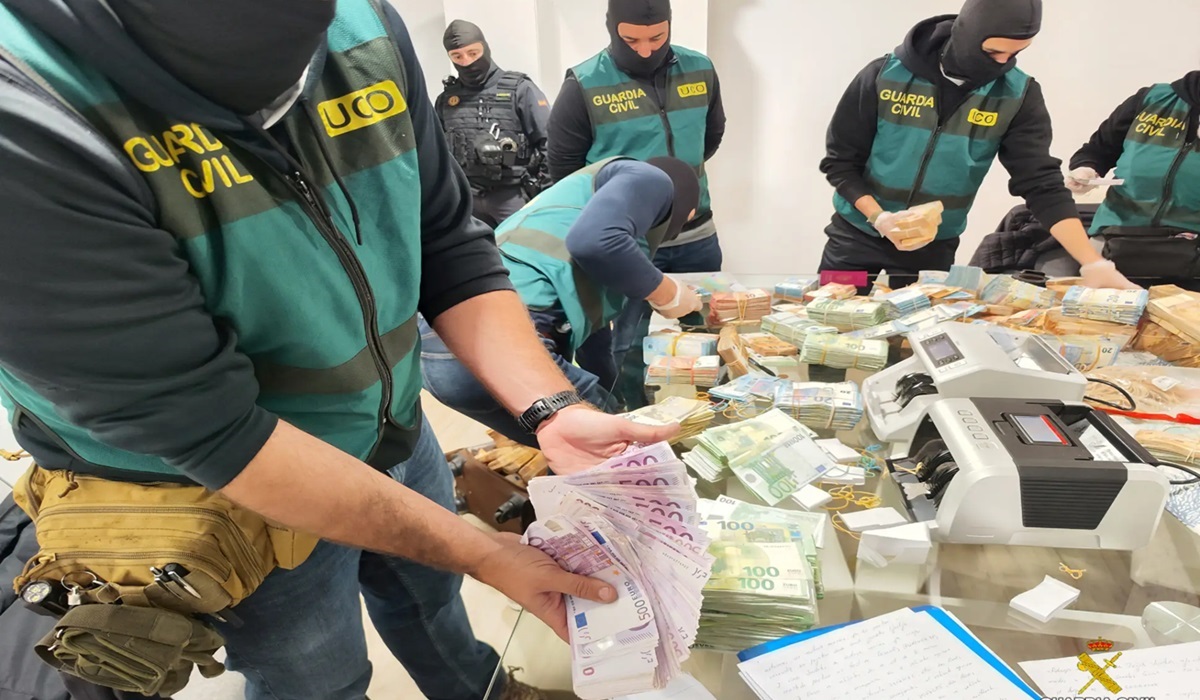In a significant blow to organized crime, the Spanish Civil Guard, in collaboration with Europol and the US Drug Enforcement Administration (DEA), successfully dismantled a major cocaine laboratory near Madrid capable of producing a staggering 100 kilograms of the illicit drug monthly. The operation culminated in the arrest of 20 suspects, including several high-value targets implicated in multiple drug trafficking offenses.
The raid, executed on April 30, saw the seizure of 21 drums containing liquid and solid chemicals crucial for cocaine extraction and processing. Additionally, law enforcement authorities confiscated a substantial EUR 3 million in cash along with assets valued at approximately EUR 10 million, including lavish residences, vehicles, and recreational boats.
The individuals apprehended, comprising 19 Spanish nationals and one Colombian, allegedly orchestrated the importation of cocaine and coca leaves from South America to Spain via recreational vessels. Exploiting maritime routes, they chartered sailboats and catamarans from Galicia to transport the contraband into Europe, recruiting individuals with maritime expertise and clean criminal records for the operation.
Upon reaching the Galician coast, the illicit cargo was discreetly distributed inland and to other European Union member states through vehicles outfitted with sophisticated concealment compartments. Notably, to maximize their profits, the criminal syndicate reportedly operated a clandestine cocaine laboratory nestled in the outskirts of Madrid, where the drug was extracted from coca leaves.

During the crackdown, authorities seized a substantial cache of narcotics, including 50 kilograms of cocaine, 1 kilogram of heroin, 1.7 kilograms of hashish, 1 kilogram of Tusi, 10 kilograms of marijuana, 750 grams of MDMA, 10,000 ecstasy pills, and 700 grams of amphetamine.
The successful operation underscores a concerning trend in cocaine trafficking, where criminal organizations opt to export unprocessed drugs for chemical refinement in destination countries. This strategy minimizes potential losses in the event of police seizures and complicates law enforcement efforts to disrupt trafficking networks.
Europol played a pivotal role in the investigation, providing crucial intelligence support and deploying specialists to facilitate real-time data analysis during the operation. The collaborative effort between national and international law enforcement agencies highlights the importance of transnational cooperation in combating organized crime and safeguarding public safety.
The apprehension of key operatives and the dismantling of the cocaine laboratory mark a significant victory in the ongoing battle against drug trafficking, reaffirming authorities’ commitment to upholding the rule of law and dismantling illicit networks operating within European borders.









